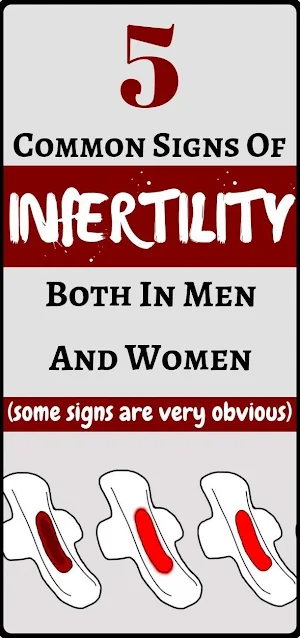When I was first told I was infertile, I was 26 years old. Stage 4 endometriosis, a medical condition, was the cause of my infertility.
Like many others who are struggling with infertility, I was devastated to hear these news. I had hopes of having a large family, but the decisions I was forced to make over the ensuing years and the excruciating pain of additional in-vitro fertilization (IVF) cycles devastated me.
Couples who struggle with infertility are not uncommon, and many of them show no symptoms. Before they start trying to get pregnant, they really have no reason to think they might have infertility. Due to this, it is strongly advised that couples who have been trying to conceive for more than a year without success, seek a doctor's guidance. This time frame is shortened to six months for women over the age of 35. Age-related infertility problems could get worse.
Signs and Symptoms of Infertility
Infertility's warning signs and symptoms are frequently connected to other underlying diseases. For instance, pelvic inflammatory disease develops in 10 to 15% of untreated chlamydia cases. As a result, the fallopian tubes become blocked, preventing fertilization. Both men and women can experience infertility due to a variety of conditions, each of which has its own distinct signs and symptoms. It's crucial to speak with your doctor if you have any concerns. The following are examples of infertility signs that are typical.
Known Signs of Infertility in Women
1. Irregular periods
The
average female cycle is 28 days long, however, anything within a few
days of that can be considered normal, for as long as those cycles are
consistent. Such as, a woman who has a 33-day cycle one month, a 31-day
cycle the next, and a 35-day cycle after that, is probably having
regular periods.
A
female whose cycles vary hugely that she can not even begin to estimate
when her period might arrive is experiencing irregular periods. And
this one may be related to some hormone issues, or to polycystic ovarian
syndrome. These may contribute to infertility.
2. Painful or heavy periods
Many
females can experience cramps with their periods. But, however, painful
periods that interfere with your daily life may be a symptom of
endometriosis.
3. No periods
It’s
not weird for women to have an off month here and there and some
factors like stress or heavy workouts may lead to your period to
temporarily disappear. However, if you haven’t had a period in months,
it’s actually the time to get your fertility checked.
4. Symptoms of hormone fluctuations
Signs
of hormone fluctuations in females, may mean some potential issues with
fertility. You should definitely talk to your doctor if you experience
the following:
• skin issues
• facial hair growth
• thinning hair
• reduced sex drive
• weight gain
5. Pain during sex
Many
have experienced painful sex their entire lives, so they think and are
convinced it’s normal. But it’s certanly not. It may be related to
having some hormone issues, to endometriosis, or to some other
underlying conditions that could also be contributing to infertility.
Common Signs of Infertility in Men
1. Changes in sexual desire
A
male fertility is also correlated with his hormone health. Experiencing
some changes in virility, often by hormones, may indicate issues with
fertility.
2. Testicle pain or swelling
There
exist numerous different conditions that could lead to pain or swelling
in the testicles, many of them could contribute to infertility.
3. Problems maintaining erection
A
male ability to maintain an erection is quite often related to his
hormone levels. Lowered hormones may result, that could potentially
translate into trouble conceiving.
4. Issues with ejaculation
Similar, an inability to ejaculate is actually a sign that it might be time to visit a doctor.
5. Small, firm testicles
The
testes house a male‘s sperm, so the health of a testicle is paramount
to male fertility. Having small or firm testicles may mean potential
issues that should be explored by a medical practitioner.
The Take away
About
15 to 20 percent of couples who are trying to conceive will have
trouble with infertility. Female factor infertility is usually to blame
40 percent of the time, and male factor infertility is the cause of
issues 30 to 40 percent of the time. Together these factors leads to
infertility 20 to 30 percent of the time.
In
case you have been diagnosed with infertility, o rare in fear you may
have trouble conceiving in the future, you’re not alone. The medical
industry is constantly making some advances in this field. Make an
appointment to see your doctor and go over your concerns. Even though
you might be diagnosed with infertility, you can still be able to
conceive.

